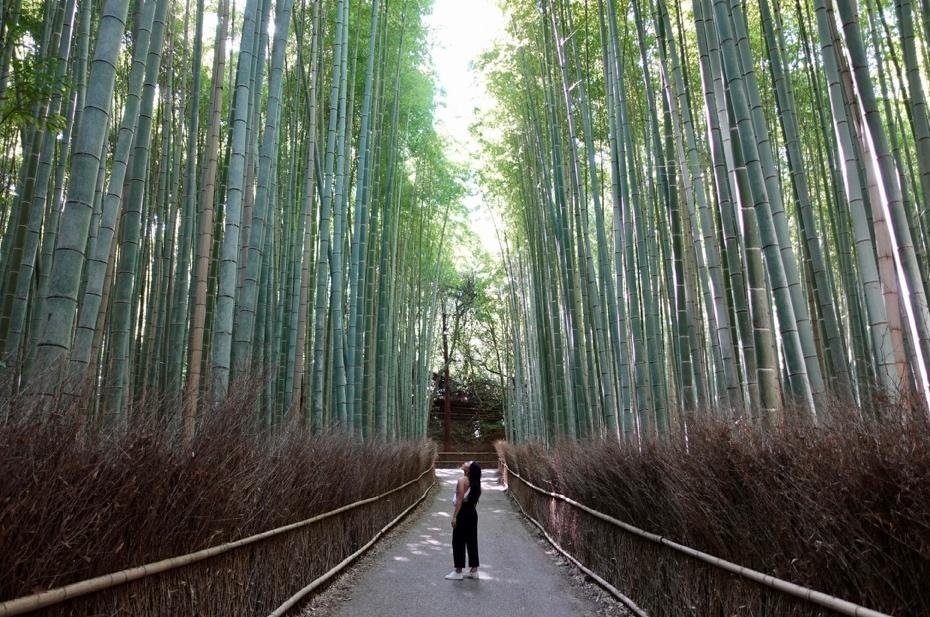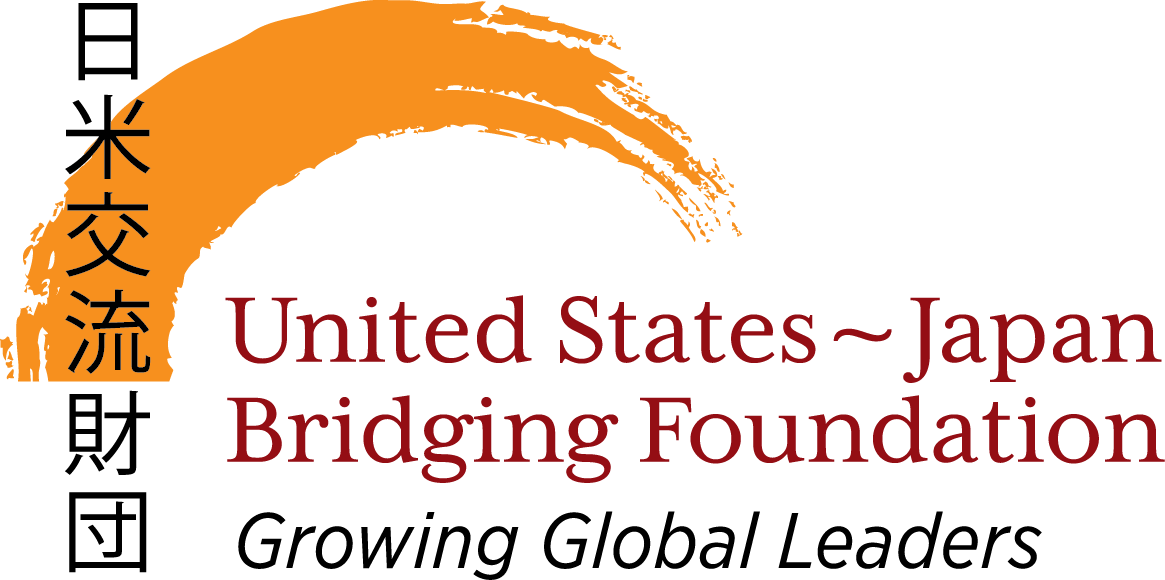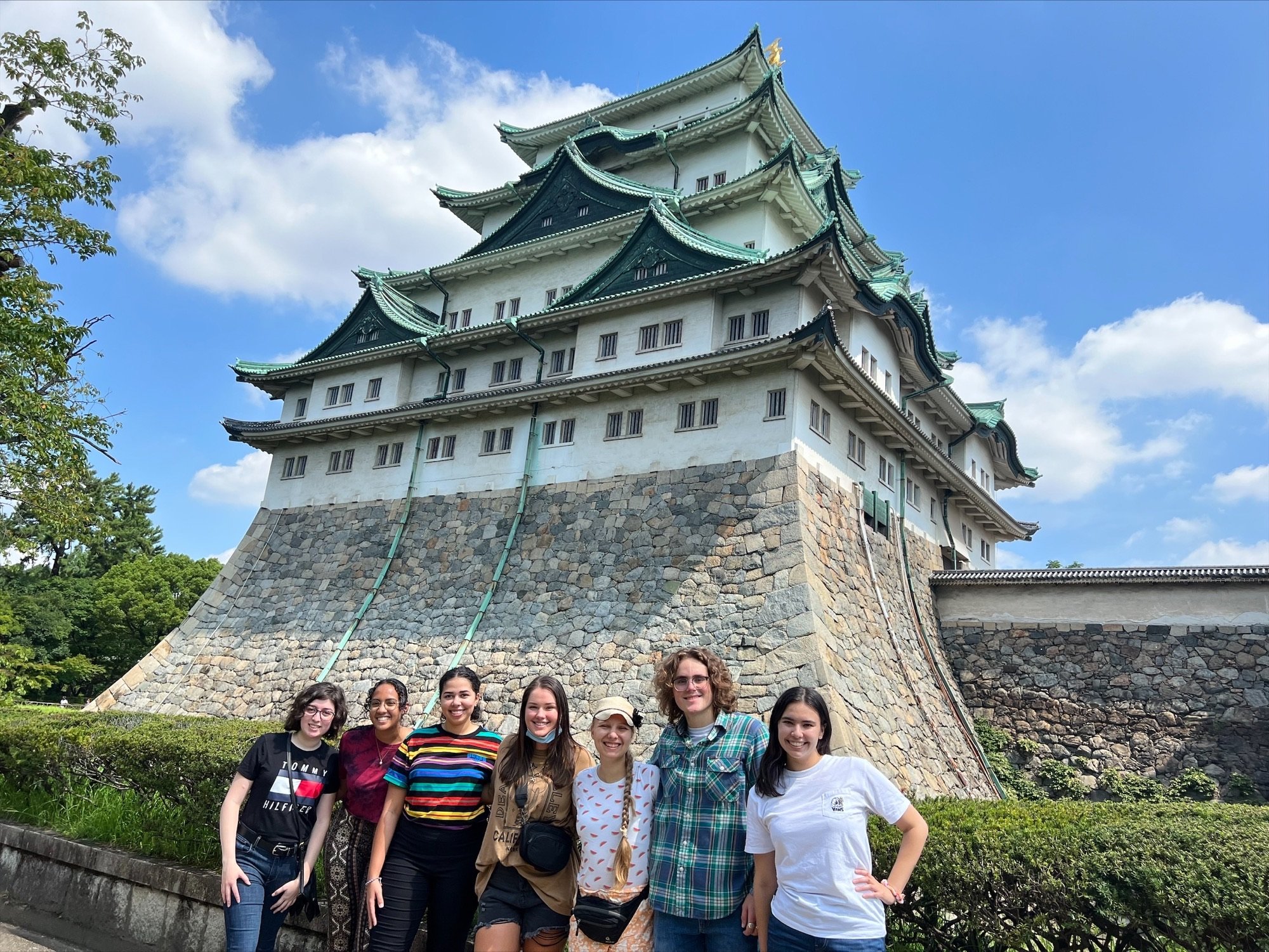
Student Resource Guide
your engagement with japan doesn’t Have to end after the bridging SCHOLARS program.
There are many opportunities to stay connected with Japan beyond the Bridging Scholars Program, and the Foundation encourages students to remain involved with Japan through study, research, employment, volunteerism, and more.
The below resource guide offers some suggested next steps for students looking to continue their relationship with Japan, whether abroad or in the U.S. The guide is prefaced by the top 4 recommended opportunities that Bridging alumnae have had great success with in the past.
top 4 opportunities relevant to bridging scholars
Inter-University Center Yokohama: A consortium-established institution that offers advanced language training to students pursuing academic or professional careers related to Japan. The IUC is known for its intensive language programs that cater to graduate students and individuals who plan on a career connected to Japan. Generous scholarships available.
The Japan Exchange and Teaching (JET) Program: A Japanese government initiative that invites young professionals, primarily from English-speaking countries, to assist with international exchange and foreign language education throughout Japan.
Fulbright Program: Provides grants for individually designed study/research projects or for English Teaching Assistant Programs in Japan.
Monbukagakusho (MEXT) Scholarship: Offered by the Japanese government for graduate research, postgraduate studies, and language training in Japan.
Additional opportunities
As an undergraduate
Additional study abroad opportunities / scholarships
Japanese Government (MEXT) Scholarships for Undergraduate Students: These scholarships cover tuition, accommodation, and living expenses for students to study at Japanese universities.
Fulbright Program: Provides grants for individually designed study/research projects or for English Teaching Assistant Programs in Japan.
Critical Language Scholarship (CLS) Program: Offers fully funded summer language institutes for U.S. university students to learn Japanese and immerse themselves in the culture.
CIEE Japan Study Abroad Programs: Offers various programs in Tokyo and Kyoto, including language and culture studies, liberal arts, and business.
The Freeman-ASIA Scholarship: Provides funding for the U.S.-based undergraduates with demonstrated financial need planning to study abroad in East or Southeast Asia, including Japan.
The U.S.-Japan Council Toshizo Watanabe Endowed Scholarship: Provides financial assistance to undergraduate students for a semester or year-long study abroad program in Japan.
Benjamin A. Gilman International Scholarship Program: A grant program that enables students of limited financial means to study or intern abroad, thereby gaining skills critical to national security and economic prosperity.
The U.S.-Japan Council Toshizo Watanabe Endowed Scholarship: Provides financial assistance to undergraduate students for a semester or year-long study abroad program in Japan.
The Boren Scholarship: A prestigious program funded by the National Security Education Program (NSEP), which encourages U.S. undergraduate students to study less commonly taught languages in world regions critical to U.S. interests, including Asia and specifically Japan.
KCP International Japanese Language School: Provides intensive language and cultural education in Tokyo, with opportunities for scholarships.
IES Abroad Tokyo - Language & Culture: A program that allows students to take courses in English and Japanese at one of the top universities in Japan.
Internship Resources
The Maureen and Mike Mansfield Foundation: Offers unique internship opportunities for individuals looking to deepen their understanding of the U.S.-Asia relations and public policy. These internships provide hands-on experience in a range of programs that foster constructive engagement between Asia and the United States.
DISCO International Internships: A program that matches students with internships at companies in Japan, providing work experience and cultural exposure.
Beyond Academy: Beyond Academy offers internships in various locations around the world, including Japan. Their internships in Japan typically aim to provide participants with hands-on experience in a wide range of industries while immersing them in the local culture.
CIEE Japan Internship Programs: Offers various internship programs in Tokyo and elsewhere, in a variety of industries including language and culture studies, liberal arts, and business.
U.S. Department of State: Paid internships are available to junior and senior undergraduates and graduate students. Applicants have some latitude to request/specify placement in the U.S. Mission to Japan.
CRCC Asia: Offers internship programs in Tokyo with a focus on enhancing employability and providing business insights into Asia.
The Intern Group: Provides internships in Tokyo in various sectors along with professional development tools and workshops.
Meiji Internships: Offers personalized internship placements in multiple cities in Japan, including cultural activities and accommodation support.
Asia Society: With offices in the US and in Asia, Asia Society’s purpose is to navigate shared futures for Asia and the world across policy, arts and culture, education, sustainability, business, and technology.
The Indo-Pacific Program at the Woodrow Wilson International Center for Scholars: The Indo-Pacific Program provides a forum in the nation's capital for enhancing deeper understanding of, and policy debate about, Asia. It seeks to furnish an intellectual link between the world of ideas and the world of policy on issues relating to Asia and US interests in Asia.
ACCJ Internship Portal: Designed to connect students with internship opportunities offered by ACCJ member companies.
Post-UnderGraduate
Graduate School
In the United States, there are numerous institutions offering graduate programs in Japanese Studies, including culture and history, as well as programs in international relations and public policy. These programs often provide students with a comprehensive understanding of Japan through interdisciplinary coursework, research opportunities, and language training.
Here is a list of American graduate programs specializing in Japanese studies, international relations, and/or public policy:
Columbia University: The Department of East Asian Languages and Cultures offers a Master of Arts program in Japanese Cultural Studies, as well as a Ph.D. program with a focus on Japanese literature, history, and culture.
Cornell University: The Department of Asian Studies has a strong program in East Asian studies, including Japanese language, literature, and culture.Duke University: The Asian and Middle Eastern Studies department offers a variety of courses and research opportunities related to Japan.
Georgetown University: The Asian Studies Program in the Edmund A. Walsh School of Foreign Service includes a concentration in Japan studies, with interdisciplinary coursework in Japanese politics, security, and society.
George Washington University: The Elliott School of International Affairs offers a Master of Arts in Asian Studies with a focus on Japan, emphasizing policy and international relations.
Harvard University: The Department of East Asian Languages and Civilizations provides graduate programs in Japanese studies, with opportunities for research in traditional and modern Japanese literature, history, and more.
Indiana University Bloomington: The East Asian Languages and Cultures department offers a Master's degree in East Asian Studies with a concentration in Japanese studies.
Johns Hopkins University, School of Advanced International Studies (SAIS): Offers a concentration in Japan Studies with courses on Japanese politics, economics, and international relations, preparing students for careers in international fields related to Japan.
Ohio State University: Graduate students can pursue both the M.A. and Ph.D. in Chinese or Japanese, focusing on literature, linguistics, or language pedagogy as a field of specialization, and the MA in Advanced Chinese Language and Culture.
Princeton University: Features graduate programs in East Asian Studies with opportunities to focus on Japan.
Purdue University: MA and Ph.D. programs in Japanese Language Pedagogy and a MA program in Japanese literature. Students wishing to pursue a Ph.D. with a focus on Japanese literature may apply to the Comparative Literature program, and, if accepted, will work with literature faculty in Japanese as well as other languages.
Stanford University: The Center for East Asian Studies offers a Master's program with a concentration in Japanese studies, focusing on contemporary and historical aspects of Japan's culture and society.
University of California, Berkeley: The Department of East Asian Languages and Cultures has a graduate program offering advanced study in Japanese literature, history, religion, and linguistics.
University of California, LA: Offers graduate degrees in Asian Languages and Cultures with a specialization in Japan.
University of California, San Diego (UCSD): The School of Global Policy and Strategy offers a Master of International Affairs with a regional specialization in Japan, focusing on contemporary issues and policy.
University of Chicago:The Department of East Asian Languages and Civilizations offers graduate programs with a focus on the study of Japanese history, religion, and cultural studies.
University of Colorado Boulder: The Department of Asian Languages and Civilizations offers a Master's degree in Japanese language and civilizations with a comprehensive curriculum on Japanese culture and language.
University of Hawaii at Manoa: The School of Pacific and Asian Studies has a strong program in Japanese studies, offering both MA and Ph.D. degrees with a focus on interdisciplinary research.
University of Illinois at Urbana-Champaign: The Department of East Asian Languages and Cultures provides graduate programs with opportunities for research in Japanese language, literature, and cultural studies.
University of Kansas: Offers graduate programs with a focus on Japanese studies through its Department of East Asian Languages and Cultures.
University of Massachusetts Amherst: Offers a MA in Japanese, which provides a comprehensive exploration of the language, literature, and culture of Japan.
University of Michigan: The Center for Japanese Studies at the University of Michigan is one of the oldest interdisciplinary centers in the U.S., offering M.A. and Ph.D. programs with a comprehensive curriculum on Japanese culture and language.
University of Minnesota: The Department of Asian Languages and Literatures offers graduate programs with a focus on Japanese literary and cultural studies.
University of North Carolina at Chapel Hill: The Department of Asian Studies provides a comprehensive curriculum for students interested in Japanese language, history, and culture.
University of Oregon: Offers a Master of Arts (MA) degree in East Asian Languages and Literatures with a specialization in Japanese studies and a PhD program in East Asian linguistics.
University of Pennsylvania (Penn): The Department of East Asian Languages and Civilizations offers a Ph.D. program with a focus on Japanese literature, history, and culture.
University of Pittsburgh: The Asian Studies Center offers a Master of Arts in East Asian Studies, with opportunities for students to concentrate on Japanese studies.
University of Southern California (USC): USC's East Asian Studies Center offers a Ph.D. program in East Asian languages and cultures.
University of Texas at Austin: The Department of Asian Studies has a graduate program offering advanced study in Japanese language and culture, with an emphasis on interdisciplinary research.
University of Washington: The Jackson School of International Studies offers a Master of Arts in International Studies with a Japan Studies program, focusing on modern Japanese society, politics, economics, and international relations.
University of Wisconsin-Madison: The Department of East Asian Languages and Literature offers graduate degrees with a focus on Japanese literature, linguistics, and cultural studies.
Yale University: The Council on East Asian Studies provides graduate studies in Japanese literature, history, and other aspects of traditional and modern Japan.
These programs often require proficiency in the Japanese language and may offer study abroad opportunities, internships, and fellowships to enhance the academic experience. Graduates of these programs typically pursue careers in academia, government, international business, and cultural institutions.
For specific details about each program, including application requirements, course offerings, and financial aid options, prospective students should directly contact the universities' admissions offices or visit their official websites.
There are a number of graduate programs in Japan that cater to international students, including those from the United States, who are interested in Japanese studies and related fields. These programs often offer courses in English and are designed to provide students with in-depth knowledge of Japan's culture, history, society, and language. Here are some notable graduate programs in Japan:
Hitotsubashi University: The Graduate School of Social Sciences has programs that include elements of Japanese studies, particularly in social and cultural analysis.
International Christian University (ICU): The Graduate School of Arts and Sciences provides a program in Japanese culture studies among other disciplines.
Kyoto University: The Graduate School of Asian and African Area Studies provides programs for students interested in regional studies, including Japanese studies.
Nagoya University: Offers interdisciplinary graduate programs through the Graduate School of Humanities that may include Japanese studies.
Osaka University: The School of International Public Policy offers a program that includes aspects of Japanese studies, particularly in the context of international relations and public policy.
Ritsumeikan Asia Pacific University (APU): Offers graduate programs in Asia Pacific Studies and International Management with courses related to Japanese culture and society.
Sophia University: Offers a Master's in Global Studies where students can specialize in Japanese studies, international business and development, and more.
Temple University Japan: TUJ offers two graduate programs at its Tokyo campus of potential interest, a one-year Master in Management program and a Master's in TESOL and Ph.D in Applied Linguistics.
University of Tokyo (Todai): Offers the Graduate Programs on Environmental Sciences, which includes interdisciplinary courses related to Japanese studies in English.
Waseda University: The Graduate School of Asia-Pacific Studies provides a program focusing on the socio-economic and political aspects of the region, including Japan.
These programs typically require students to have some proficiency in Japanese, although many offer intensive Japanese language courses as part of the curriculum. Additionally, many universities provide support for international students, including assistance with housing, visa processing, and orientation to life in Japan.
For American students interested in these programs, it is important to check specific admission requirements, application deadlines, and scholarship opportunities. Many Japanese universities participate in the MEXT scholarship program, which provides funding for international students to study in Japan. Students should visit the individual university websites or contact the admissions offices for the most accurate and detailed information.
Other
Monbukagakusho (MEXT) Scholarship: Offered by the Japanese government for graduate research, postgraduate studies, and language training in Japan.
Japan Foundation Fellowships: Supports researchers, professionals, and artists to conduct research or pursue artistic activities in Japan for up to 2 years.
The Blakemore Freeman Fellowships: Provides funding for advanced level language study in East and Southeast Asia, including Japan.
Japan Society for the Promotion of Science (JSPS) Fellowship: Provides opportunities for postdoctoral researchers to conduct cooperative research with leading research groups in Japanese universities and other institutions.
The Rotary Foundation Global Grants: Supports graduate-level coursework or research for one to four academic years.
Princeton in Asia (PiA) Fellowships: Offers teaching, business, and other professional positions in Japan for recent graduates.
U.S. State Department's Pickering and Rangel programs: Will pay for a two-year graduate degree in international affairs for those interested in a Foreign Service career. This is not exclusive to study in Japan, but participants have the ability to seek assignment to Japan.
General Volunteer Opportunities
In the United States
Japan-America Societies: Local Japan-America Societies often have volunteer opportunities, including cultural events, educational programs, and Japan-related festivals.
Japanese Cultural Festivals: Volunteers can help organize and run local Japanese festivals such as cherry blossom festivals, Tanabata festivals, or Obon festivals.
Sister City Programs: Sister City relationships between U.S. and Japanese cities often include cultural exchange programs where volunteers can participate.
Museums and Cultural Centers: Institutions with a focus on Japanese art and culture, such as the Japanese American National Museum, may offer volunteer positions.
Language Exchange: Participate in or organize language exchange meetups for individuals looking to practice English and Japanese.
Anime and Manga Conventions: These events often seek volunteers to assist with setup, operations, and activities.
In Japan
Peace Boat: This Japan-based international NGO organizes global voyages for peace and sustainability and offers volunteer opportunities on board.
Second Harvest Japan: Japan's first food bank where volunteers can help with food sorting and distribution.
Animal Rescue: Organizations like Japan Cat Network and Animal Refuge Kansai look for volunteers to help with animal care and rescue efforts.
Disaster Relief: After natural disasters, there are often calls for volunteers to help with recovery and rebuilding efforts.
Local NGOs and NPOs: Many local organizations in Japan welcome volunteers for various social, environmental, and cultural activities.
Farming and Rural Projects: Programs like WWOOF Japan allow volunteers to work on organic farms and experience rural life.
Cultural Heritage Preservation: Volunteer to help preserve historical sites and traditional crafts, often through local community organizations.
When considering volunteer opportunities, especially in Japan, it is crucial to be aware of visa regulations and ensure that any volunteer work complies with local laws. Additionally, language proficiency may be necessary for certain positions, and some organizations might provide training or orientation to volunteers. Always reach out to the organization directly for the most accurate and up-to-date information on available opportunities and requirements.
additional recommendations?
Please email them to operations@bridgingfoundation.org.




